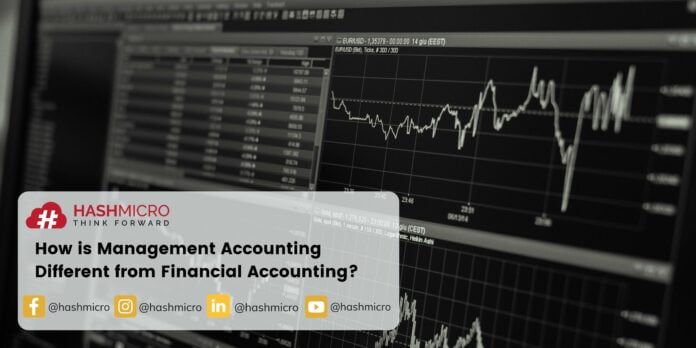The internals of a business is just as important as the externals because without them it would be hard to manage the life of a business. Managerial or management accounting is the way of establishing organizational goals through the identification, measurement, analysis, interpretation, and transmission of information to the internals of a business.
By doing accounting management, managers of a business would be able to construct arranged short-term and even long-term decisions. This type of accounting has internals as the focus audience. It would assist the managers of a business to plan for the future, generate informed business decisions, as well as manage risks.
Accounting management is concerned with all aspects of accounting that are used to inform management about operational business metrics. It makes use of the purchase data pertaining to the costs of products or services by the business. Budgets are frequently used to quantify operational planning decisions. Management accountants use performance reports to note variances between actual results from budgets.

Table of Content:
Table of Content
What is Management Accounting?
Managerial accounting is the process of identifying, measuring, interpreting, and communicating information to management to assist them in planning, decision-making, and risk management.
Managerial accountants use information relating to the cost and sales revenue of goods and services generated by the company. This accounting type helps to ease those on the managerial level of a business to make decisions and establish goals of the company through information in the report.
Management Accounting Objectives
After reading and understanding the definition, it is visible that the purpose of managerial accounting is to help managers grow the business. But, how exactly does this type of accounting assist them?
Managerial accounting’s primary objective is to maximize profits while minimizing losses. It is concerned with the presentation of data in order to forecast financial inconsistencies that aid managers in making critical decisions. Its scope is quite expansive and encompasses a variety of business operations.
Techniques in Management Accounting
In order to deliver a good report, management accountants do apply various techniques in the establishment of their work:
- Marginal analysis
This compares profits to a variety of different types of costs. It focuses on the advantages of increased production. It helps determine the break-even point, which requires knowledge of the company’s contribution margin on its sales mix. Here, sales mix refers to the proportion of a product that a business has sold in relation to its total sales. This is used to calculate the unit volume at which the gross sales of the business equal the total expenditures. Managerial accountants use this value to establish price points for various products.
- Constraint analysis
Managerial accounting keeps track of a product’s profit and cash flow constraints. It identifies and quantifies the major bottlenecks and the problems they cause, as well as their impact on revenue, profit, and cash flow.
- Capital budgeting
This is an analysis of data in order to make capital expenditures-related decisions. Managerial accountants perform this analysis to assist managers with capital budgeting decisions such as calculating the payback period or accounting rate of return.
- Inventory valuation and product costing
This technique discusses the establishment of the true cost of goods and services. Generally, the process entails calculating overhead charges and assessing direct costs associated with the cost of goods sold.
- Trend analysis and forecasting
This is primarily concerned with variations in the costs of products. The resulting data is beneficial for identifying unusual patterns and determining the most efficient methods for identifying and resolving underlying issues.
The Differences: Financial Accounting vs Management Accounting
Even if both accounting comes from the same tree, both have significant differences, those are:
- Target audience
Due to the fact that managerial accounting is not intended for external users, it can be customized to meet the requirements of its intended users. This can vary significantly between companies and even between departments within a company. While in financial accounting, the goal is to protect the externals such as stakeholders, and creditors to keep on funding their company by giving financial reports.
- Standards of writing format
Accounting for monetary transactions must conform to certain standards, including generally accepted accounting principles (GAAP). To maintain their publicly traded status, all publicly held companies need to complete their financial statements in accordance with GAAP. The majority of other businesses comply with GAAP in order to conform with debt covenants frequently imposed by financial institutions offering lines of credit.
- Outlook
Financial accounting involves reporting on past transactions and activities, whereas managerial accounting is focused on the future of the company. Financial accountants write reports such as income statements and the balance sheet to give insight into transactions in a period of time in the past. In contrast, management accountants make reports to help managers make decisions that impact the future. For example, budgets, or forecasting.
- Scope
The scope for financial accounting is broader compared to managerial accounting. Financial reports consolidate the results of all the different departments in a business. It is necessary for the externals to get insight into how the company is operating. While the scope in management accounting is more narrow. This type of accounting differs the inside of a company into segments and divisions. It would provide the managers of the different areas with in-detail reports to assist them specifically.
Management Accounting Functions
Similar to the aforementioned, the main function of management accounting is to help managers in identifying, interpreting, and analyzing information provided by the managerial accountants. Quoting accountingnotes.com, the functions of management accounting are:
- Helping to forecast the future of a company
Forecasting is the process of making projections using data and information. These can then be compared to what actually occurs. For example, a company could use management accounting to predict what action they should take next after a specific occurrence in their performance.
- Helping in make-or-buy decisions
With the information of cost and production provided in the report, managerial accounting could really help the company in making a decision for purchases. The data present in managerial accounting is also able to empower decision-making at both an operational and strategic level.
- Analyzing the rate of return (RoR)
Knowing the rate of return (ROR) is critical before embarking on a large-scale project. Management accounting can provide answers to critical questions such as which investment would benefit the company in the long-run, or how much the estimated cash flow would be.
Conclusion
Both financial and management accounting serve unique purposes, making them equally essential for a business. Financial accounting benefits externals like stakeholders and creditors by providing vital company information, while management accounting supports internal decision-making for managers.
To effectively manage both types of accounting, businesses should leverage trusted accounting software from HashMicro to automate and streamline their accounting processes. Explore the best accounting software with a free demo today and elevate your financial management!




































